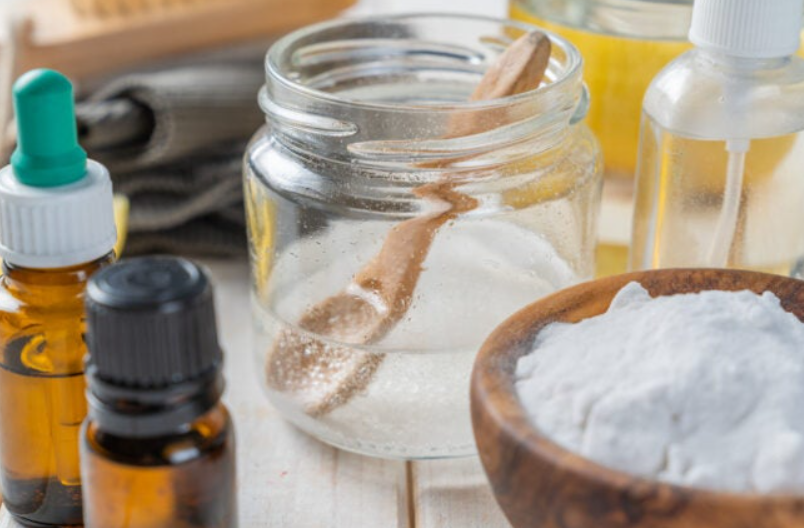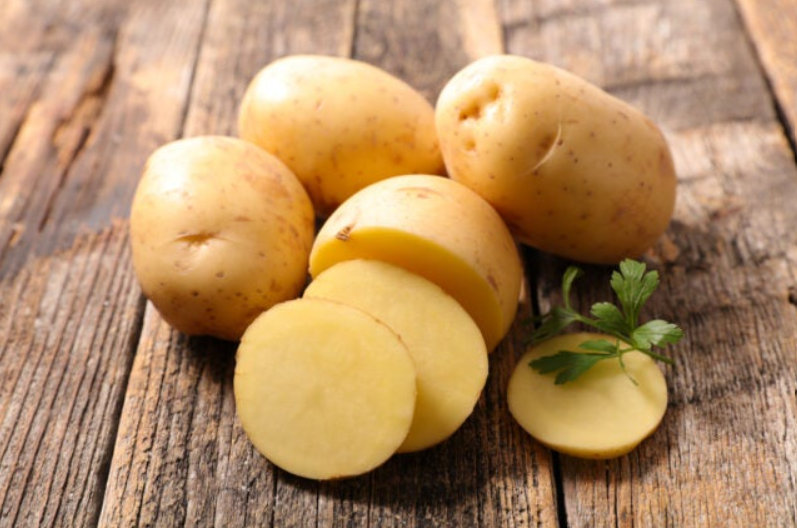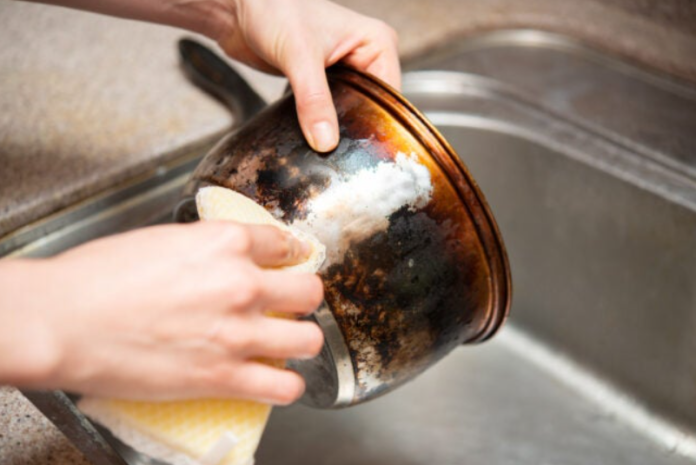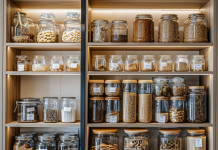What do lemons, vinegar, potatoes, ketchup and cream of tartar have in common? All of these pantry items are effective ingredients for a homemade rust remover.
Rust is a common household enemy, manifesting itself with an ugly orange-brown color, whether it’s on the kitchen utensil drawer or the toolbox in the workshop. Although it poses no health risk, anyone who wants to remove rust from metal is far from alone, and there is no shortage of rust-preventive products available on the market. Unfortunately, these products are toxic and can irritate the skin, lungs and eyes.
However, you don’t have to go to the cleaning products aisle to find a quick fix. Chances are there’s an effective homemade rust remover waiting to be assembled in your pantry-no fewer than five, in fact. Here’s how to clean rust from metal with homemade recipes based on vinegar, lemon, potatoes, ketchup and cream of tartar.
How to Remove Rust With Vinegar

White vinegar and baking soda are a duo well known for their effectiveness and versatility as household cleaners, and can even be used to remove rust from metal when combined with salt. This rust removal method is easy but time-consuming, and is ideal for cleaning several rusty metal objects at once, such as a set of kitchen utensils.
STEP 1: Prepare the rusted metal objects before soaking them in a mixture of salt and vinegar.
In a large bucket or tub, pour ½ cup of salt into ½ gallon of distilled white vinegar. Mix them together until the salt is completely dissolved. Disassemble any rusty objects that have removable non-metallic parts, such as wooden or plastic handles. Add the rusted metal parts to the vinegar solution and soak for 12 hours.
STEP 2: Remove and rinse the metal after soaking.
Put on disposable gloves or scrubbing gloves, transfer the metal objects to the sink and pour the vinegar mixture down the drain, leaving the faucet running. Rinse each piece well before returning it to the bucket or tub.
STEP 3: Soak the pieces briefly in a mixture of baking soda and water.
Pour ½ gallon of water and ½ cup of baking soda into the container and stir until the baking soda dissolves. Allow the metal to sit in the mixture for about 10 minutes before transferring each piece back to the sink and draining the water.
STEP 4: Clean, rinse and dry the metal.
Using a clean cloth, carefully wipe each metal surface. Next, rinse all surfaces with warm water. Finally, completely dry the cleaned metal with dry microfiber cloths.
How to Remove Rust With Lemons

Lemons, another popular natural cleaner, can also remove light to moderate rust from metals. Combined with the abrasiveness of table salt, these citrus fruits are as effective at cleaning and removing rust as they are delicious in spicy dishes and refreshing beverages.
STEP 1: Coat the rusted area(s) with salt and lemon juice.
For pans, hand tools and other small metal objects, place the object to be cleaned in the sink or on a suitable work surface, with all rust spots facing up. Lightly sprinkle salt over the reddish-brown stains. Then squeeze a cut lemon or use a cloth to rub lemon juice directly onto these problem areas.
STEP 2: Let the lemon juice and salt sit on the metal surface.
Let the lemon juice and salt soak into the rusted metal for up to two hours. To remove rust from particularly rusty tools or fixtures, you may need to lightly rub the mixture into the metal surface before allowing it to soak in.
STEP 3: Clean, rinse and thoroughly dry the surface.
Use a clean cloth to rub the lemon juice and salt onto the metal, then rinse the surface under running water or with a damp cloth to remove any residue. If the treated rust stains remain but have reduced in size or color, repeat these steps until all the rust is gone. When you are satisfied with the results, completely dry the cleaned metal surface with a dry microfiber cloth.
How to Remove Rust With Potatoes

If you have potatoes in your pantry, you’re in luck: raw potatoes contain oxalic acid, which makes them a natural rust remover. This method is especially useful for removing rust from cast iron pans. You can even stick the rusty metal blade of a kitchen knife into a potato and let the oxalic acid work for a few hours before moving on to step 3.
STEP 1: Cut a potato in half and coat the cut end with soap and salt.
Cut a potato in half lengthwise for large rusty areas, horizontally for small rusty spots. Apply and rub a small amount of liquid detergent on the cut end. Then sprinkle lightly with salt or baking soda to cover the soapy surface.
STEP 2: Rub the cut end of the potato over the rusted surface.
Exerting moderate pressure, press the cut end of the potato against the metal and rub it over the visible rust. Continue until the rust diminishes or disappears.
STEP 3: Rinse and dry the metal thoroughly.
Rinse the metal surface thoroughly under the kitchen faucet or with a damp cloth. Dry the cleaned surface with a dry microfiber cloth.










